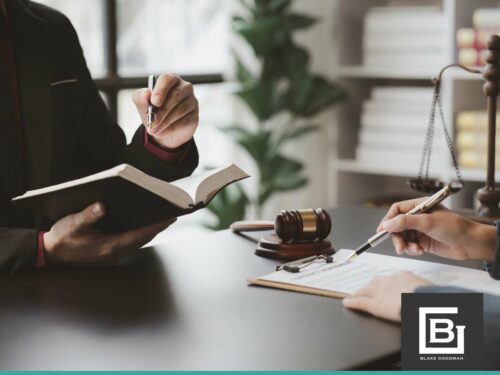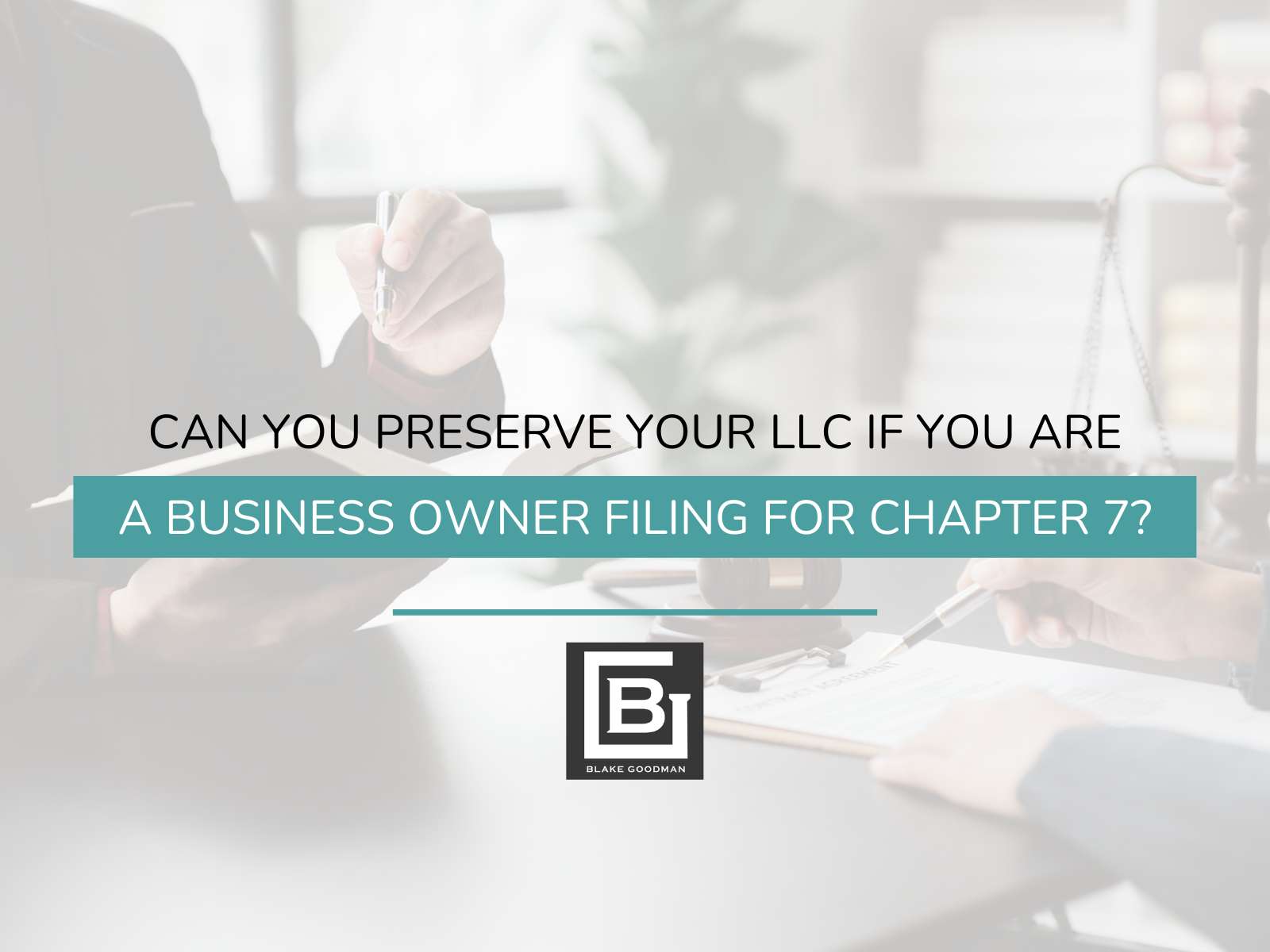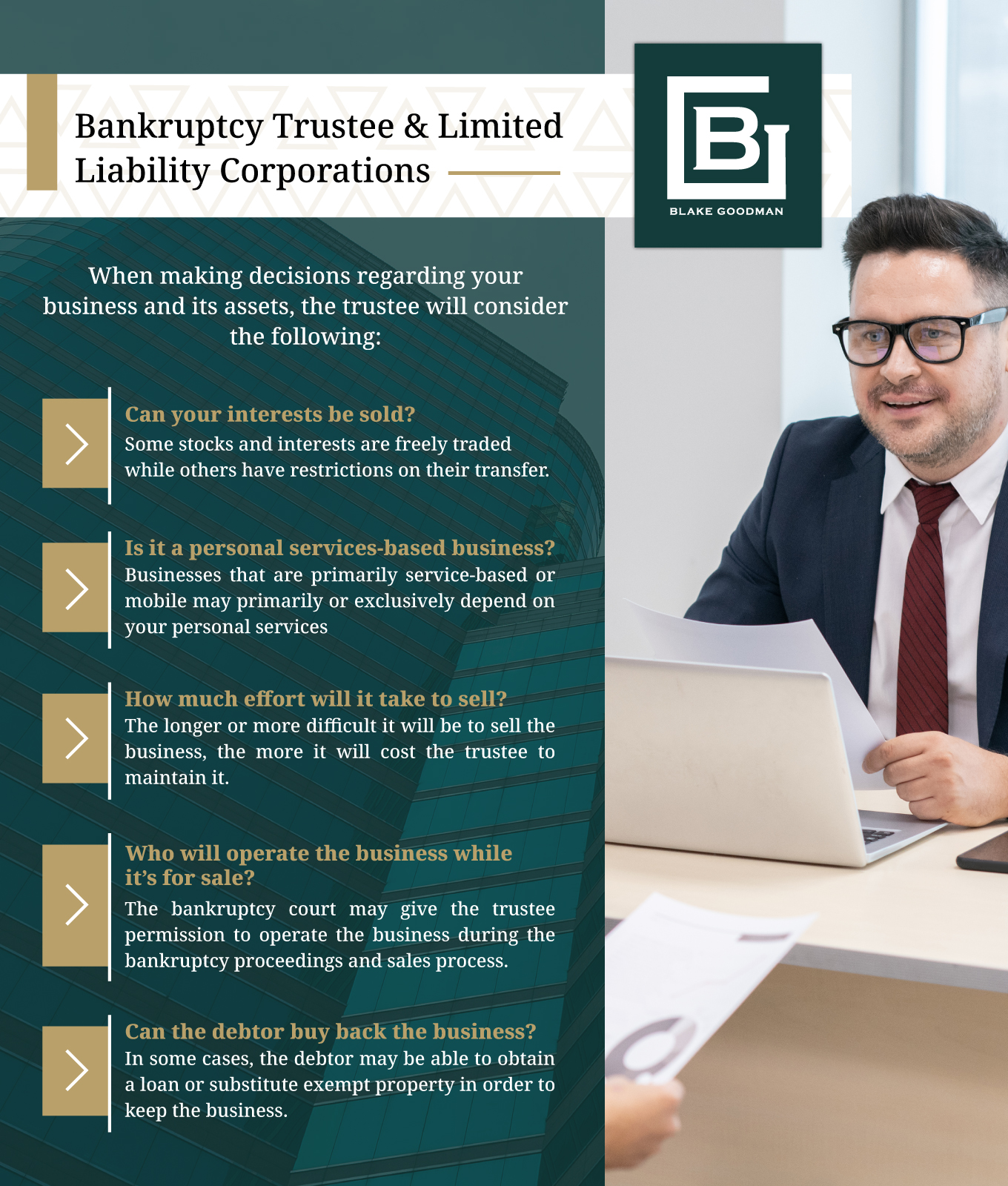How Chapter 7 Bankruptcy Affects Your Business & Assets
If you’re a business owner who is thinking about filing for bankruptcy, you might be wondering what will happen to your LLC and your business holdings. These situations can be complex so it’s best to consult with your bankruptcy attorney in Honolulu for personalized advice. However, there are some general guidelines in regard to how filing for bankruptcy will affect your LLC.
 If you declare personal bankruptcy under Chapter 7, you might still be able to keep your business running. However, there’s a risk that your company could be in danger because of your bankruptcy. The person in charge of your bankruptcy case called a trustee, may have the power to sell your business, your part of it, or something important that your business needs to work. If that happens, you could lose your business.
If you declare personal bankruptcy under Chapter 7, you might still be able to keep your business running. However, there’s a risk that your company could be in danger because of your bankruptcy. The person in charge of your bankruptcy case called a trustee, may have the power to sell your business, your part of it, or something important that your business needs to work. If that happens, you could lose your business.
If your business is a limited liability company (LLC), the law treats your personal items (like your home and car) and your business items (like company equipment or property) as different from each other. This means that normally if you have problems with debt, only your business assets would be at risk, not your personal ones. But since you own your business as “shares” or “stock,” those might be affected by your bankruptcy. This could change how things are managed when you file for bankruptcy and how your personal property is dealt with.
Protecting Your LLC with Bankruptcy Exemptions
Individuals who file for Chapter 7 bankruptcy in Hawaii can designate some of their property as exempt, or protected, from the bankruptcy proceedings. You may choose either Hawaii’s state exemption guidelines or federal guidelines, depending on which makes more sense for your situation. The key to keeping your LLC and its assets in Chapter 7 bankruptcy is using exemptions to protect them.
Depending on what type of business you have, you may be able to exempt:
- The business itself
- Ownership interests and shares
- Essential equipment, products, and assets belonging to the business
The exemption process is complicated, and you may be wondering whether state or federal exemption guidelines are a better choice for you. Your bankruptcy lawyer can guide you through this process and assist you in making the bankruptcy as advantageous for you as possible.
In Hawaii, you can protect all “tools of the trade” as well as the property of your business partnership without a limit. Although some states further offer a “wildcard exemption” that can be applied to almost any asset within certain limits, Hawaii does not offer this exemption. For many individuals, complying with federal exemption guidelines may be a better option.
Bankruptcy Trustee & Limited Liability Corporations
If you cannot partially or fully protect your business and its assets when filing for a personal Chapter 7 bankruptcy, you’ll need to consider what will happen to those assets. Once you’ve filed for bankruptcy, a trustee will be assigned to your case. There are two ways that your trustee will approach the nonexempt business assets: selling or abandoning them.
The trustee will calculate whether selling the asset will result in enough money to benefit your creditors. If the asset is not worth enough money to make the sales process worthwhile, it will be considered a burden to the estate and abandoned, which means it will remain in your possession. In some cases, this may include your LLC or its assets.
When making decisions regarding your business and its assets, the trustee will consider the following:
- Can your interests be sold? Some stocks and interests are freely traded while others have restrictions on their transfer. For example, a family-owned business may only allow family members to own the stock, which can make a sale of your interests difficult or impossible.
- Is it a personal services-based business? Businesses that are primarily service-based or mobile may primarily or exclusively depend on your personal services, which means there is little that the trustee can actually sell, unlike a physical store or business that would have tangible assets.
- How much effort will it take to sell? The longer or more difficult it will be to sell the business, the more it will cost the trustee to maintain it. Your trustee may determine that the anticipated sales proceeds are not worthwhile.
- Who will operate the business while it’s for sale? The bankruptcy court may give the trustee permission to operate the business during the bankruptcy proceedings and sales process. Depending on the type of business, the trustee may keep it running in order to liquidate the inventory and earn proceeds for your debts.
- Can the debtor buy back the business? In some cases, the debtor may be able to obtain a loan or substitute exempt property in order to keep the business.
Exempting Business Assets in Hawaii Chapter 7 Bankruptcy

It’s best to discuss the situation thoroughly with your bankruptcy lawyers before you begin the filing process to ensure that you understand how the bankruptcy law applies to your situation, which exemption system will benefit you most, and how to use bankruptcy to your maximum advantage while protecting your business as much as possible.
Get Legal Advice on Protecting Your LLC in Bankruptcy
If you’re an LLC owner in Hawaii and thinking about filing for bankruptcy, you should seek expert legal advice from a bankruptcy lawyer who understands the law and how to protect your company. Get in touch with Blake Goodman, P.C. for a comprehensive review of your case and personalized advice on how to move forward. As Hawaii’s leading bankruptcy filers, we will be with you every step of the way, providing trusted legal advice and guidance throughout the process. Contact us to schedule your free consultation!

Email: blake@debtfreehawaii.com
Website: https://www.debtfreehawaii.com/
HONOLULU OFFICE
900 Fort Street MallSuite 910
Honolulu, HI 96813
Phone: (808) 517-5446
AIEA OFFICE
98-1238 Ka'ahumanu StSuite 201
Pearl City, HI 96782
Phone: (808) 515-3441
KANEOHE OFFICE
46-005 Kawa StSuite 206
Kaneohe, HI 96744
Phone: (808) 515-3304
MAUI OFFICE
220 Imi Kala St. #203BWailuku, HI 96793
Phone: (808) 515-2037

Blake Goodman received his law degree from George Washington University in Washington, D.C. in 1989 and has been exclusively practicing bankruptcy-related law in Texas, New Mexico, and Hawaii ever since. In the past, Attorney Goodman also worked as a Certified Public Accountant, receiving his license form the State of Maryland in 1988.


